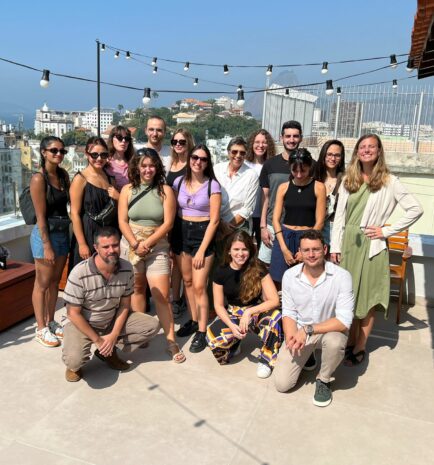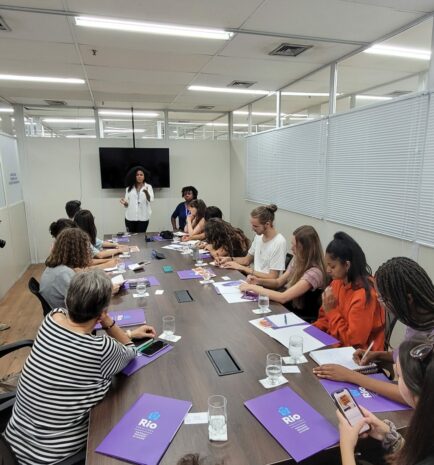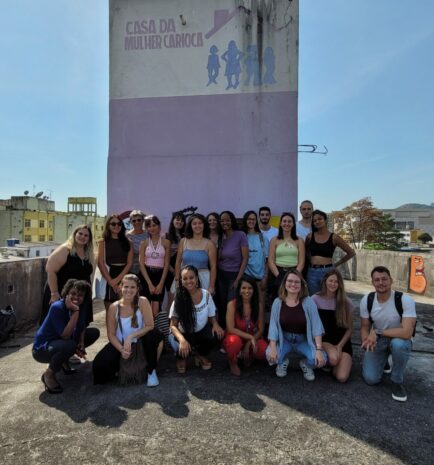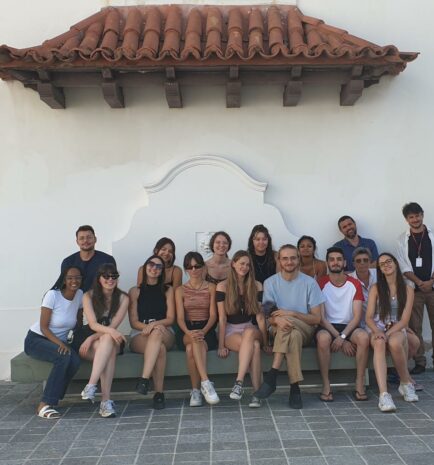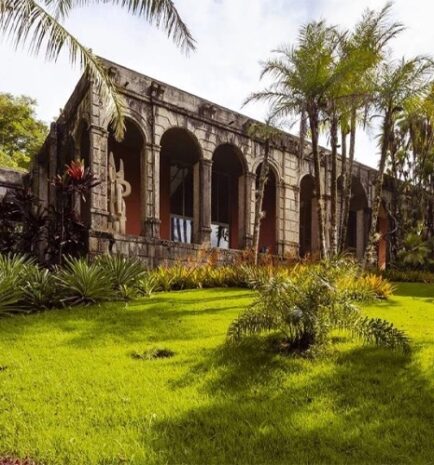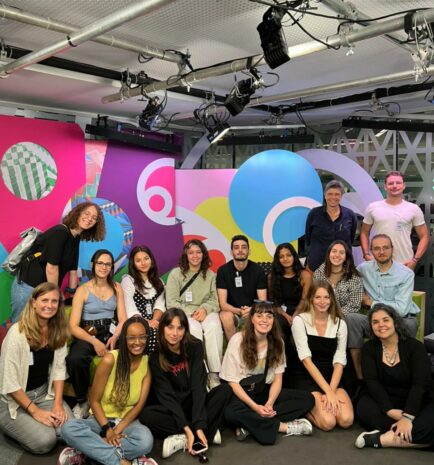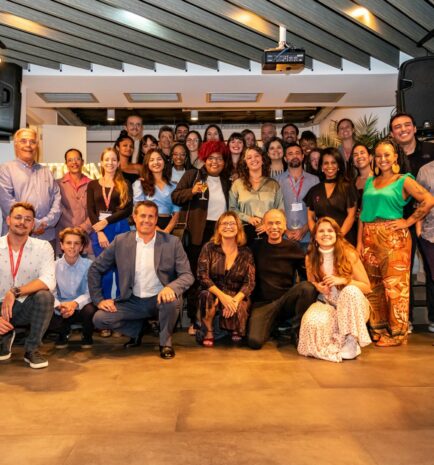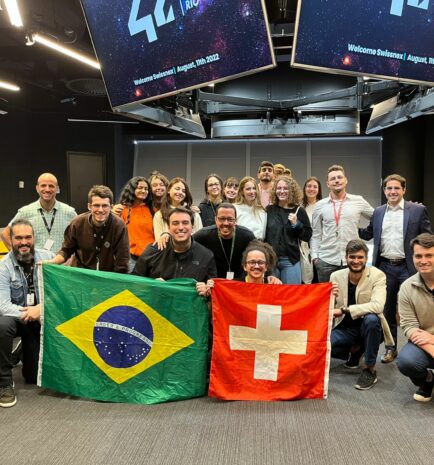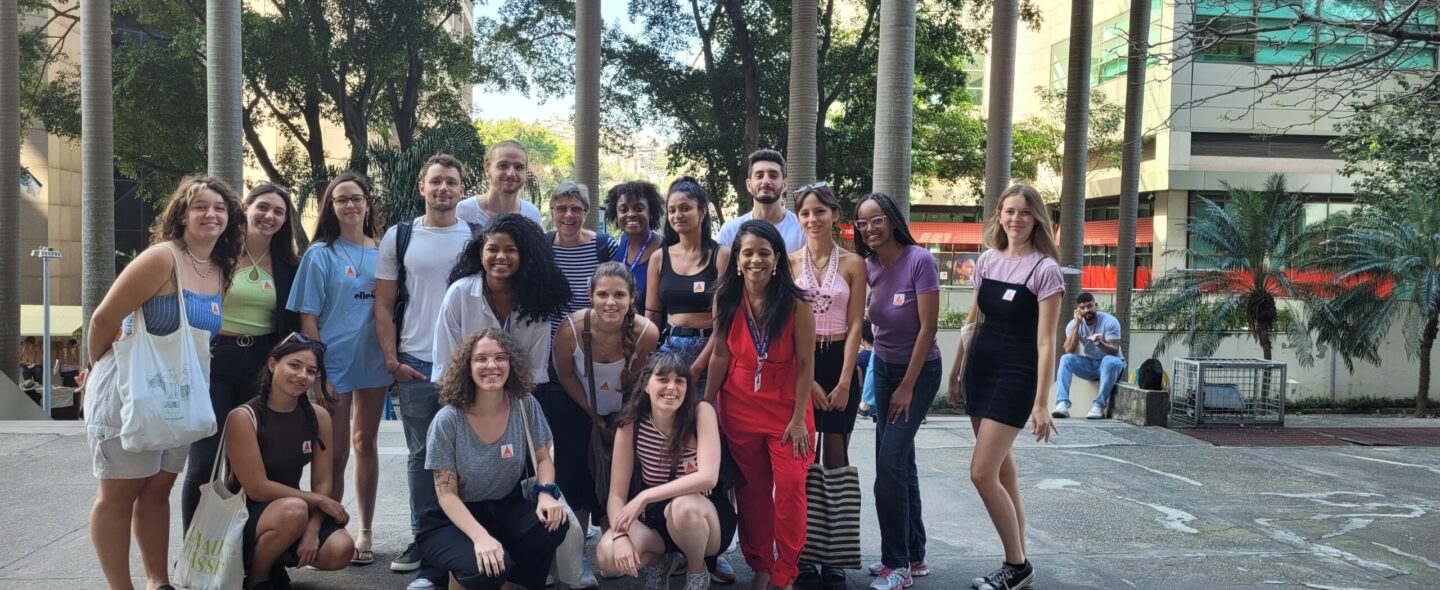
– By Vincent Neumann, Program Manager | Innovation & Startup, and Camila Schmalz, Junior Project Manager
Before the trip, the Swiss students worked on two social projects as part of their course “Major Contemporary Social Issues”: One project aims to facilitate the youth’s access to sexual education in societies where the topic tends to be neglected by public institutions and parents. The other project deals with domestic and sexual violence against women by offering vocational courses for women to reach an independent economic foothold.
In Brazil, the students strived to “tropicalize” these project ideas by confronting the Brazilian reality, which is drastically different from Switzerland and continuously adjusting aspects of their projects to the local context. Swissnex organized a field immersion program enabling the students to reach their goals and develop their projects. For two weeks, the students experienced the routine of leading social innovation organizations in Rio de Janeiro from three sectors, such as Viva Rio (non-profit), Fundação Roberto Marinho (private), and the Secretaria Municipal de Políticas e Promoção of Rio de Janeiro’s City Hall (public).
The visit to “Casa da Mulher Carioca Tia Doca” – an establishment founded by the secretary of women that provides a safe space and vocational training for vulnerable women escaping a violent environment – has unanimously been chosen as the student’s most meaningful and insightful excursion.
To complement the program, we visited the international social enterprise “42 Rio”. We had online workshops on ensuring sustainability in a social project and creating value through a business model in Brazil by the NGO “Mauern fürs Leben” and the social innovation startup and Innosuisse camper “Herby”. Last but not least, Swissnex organized sessions on the key differences between Brazilian and Swiss culture, which we mitigate in our daily work routine. The students had a pitch training workshop held by social communication coach Fabrício Martino who prepared them for their showtime.
The program’s highlight was the “NexGen Social Innovators Night” held at the event space of Swissnex in Brazil, where we were honored by the presence of the Swiss ambassador to Brazil, Mr. Pietro Lazzeri, and where we brought together the city’s leading actors in social innovation. During the event, the audience applauded the project pitch of the two student groups and engaged actively in the Q&A sessions. The atmosphere was marked by curiosity and clearly inspired spirits.
Swissnex is extraordinarily thankful to all organizations and people who collaborated on the program of these exciting weeks, everyone who voluntarily shared their insights and marked the path of young visionaries and potential future social entrepreneurs.
The experience through the Students' blog posts
-
![]()
Arrival in Rio and visit to Swissnex
Day 01
Arrival in Rio and visit to SwissnexThe students experienced their first contact with the city with their trip from the airport to the hotel. The first impressions were impactful. What struck them the most was the inequalities of conditions and the unusual way they are perceptible and evident.
“The closer we got to the center, the better the neighborhood. The buildings were well taken care of and often bigger and taller. […] The favelas and the privileged neighborhoods lie next to each other”
“The contrast struck us. Our hotel was for rather wealthy people, with marble floors and three lifts to cover the nine floors. All this made us reflect on ourselves and that we came from a very different background.’They also quickly connected what they saw to their social projects.
“We noticed a poster on the bus giving information about the help network available in the event of sexual harassment. […] Vincent explained that this poster was present in all transports in Rio.” -
![]()
Visiting Viva Rio
Day 02
Visiting Viva RioAfter catching a sense of Rio’s Panorama and Cariocas’ friendliness, the students visited Viva Rio, an NGO whose mission is to fight violence and increase equality. They got the opportunity to learn about the organization’s activities, such as the medical agents’ visits to households to deliver medicine, which also happens to be the occasion to observe and ensure the peace at women’s and children’s houses. Through Viva Rio’s experience sharing, the students could confront their projects with Brazilian reality.
“This exchange was very enriching because it allowed us to ask all our questions and reframe our project. Indeed, when we started our research in Switzerland, […], we had a rather theoretical approach.”
-
![]()
Secretaria Municipal de Políticas e Promoção da Mulher
Day 03 Part I
Secretaria da MulherThe visit to Secretaria da Mulher at Rio de Janeiro’s City Hall gave place to a deep and insightful exchange. The students met with the women responsible for implementing public policies to promote women’s health and safety. They got to hear about their methodological approach to understanding the complexity of gender issues.
“They take into account all the oppressions that women suffer according to their social status, culture, origin, and the geographical context in which they live.”
They learned about the political sphere and events that shaped it, such as the Maria de Penha Law and tackled sensitive matters, such as abortion.
-
![]()
Casa da Mulher
Day 03 Part II
Casa da MulherThe City Hall representatives also presented some of their ongoing projects. Like the Casa da Mulher Carioca, which constituted the students’ next stop.
“This house is configured as a space for promoting public policies in favor of women, to develop an environment of interaction, training, and empowerment. This initiative aims to prevent violent situations, the citizenship exercise, and the construction of independence. […]
Among the aids offered to women victims of domestic violence is financial aid for children orphaned by femicide and women victims of domestic and marital violence, in addition to education and professionalization to obtain greater independence quickly. In cases where a death danger is imminent and it is necessary to take additional measures, women are welcomed in the Casa Viva Mulher Cora Coralina, a secret place allowing them to provide for all their needs as well as those of their children if they have any.”
“We left the places moved, touched by the warm welcome of these women fighters who actively participate in such admirable projects despite the difficulties encountered. Today, we gained a better understanding of the situation of women in Brazil and all these complexities.”
-
![]()
Getting to know Rio’s history
Day 04
Getting to know Rio’s historyAfter an introduction at Swissnex’s office, based on the highlighting differences between Swiss and Brazilian ways, the group embarked on a hands-on day of historical and cultural discovery.
On the first stop at the National History Museum of Rio de Janeiro: “The presented exhibition traced the history of Brazil from 1500 to the present day and revolved around a perspective of decolonization […] It allowed us to discover the history and culture of the natives and enslaved people and to [gain] perspective.”
The group also uncovered connections between Swiss and Brazilian history: “Brazil experienced a wave of Swiss immigration in the early 19th century under the impetus of the Portuguese king João VI […] who invited them to settle in Brazil.
The day ended with a visit to the historical center and the Selaron stairs. Back at Swissnex, a working session occurred: “This one, thanks to our new historical and cultural knowledge, proved to be very lively and interesting”.
-
![]()
The first weekend
Day 05 & 06
The first weekendThe students decided to start their weekend by visiting Sítio Roberto Burle Marx. ‘A real botanical paradise’ in the Barra de Guaratiba. The site is protected and is part of the National Institute of Artistic and Historical Heritage of Brazil. It is home to more than 3500 plant species.
The art marked Sunday morning. They first went around a craft market, explored the Santa Teresa neighborhood, and visited the Artes Portas Abertas, an art exhibition. They later walked to the Parque das Ruinas. “It includes an art gallery built on the ruins of old villas and arranged to host different exhibitions during the year.”
In the afternoon, they visited the Museum of Contemporary Art of Niterói: “We appreciated the representation of women artists. Indeed, out of four exhibitions, three were devoted to the work of Brazilian women”.
“It is the spirit reinvigorated by this weekend filled with artistic inspirations and treasures of Rio de Janeiro that we find our hotel. Our imagination and creativity are stimulated for a new week of innovation.”
-
![]()
Visiting Fundação Roberto Marinho
Day 07
Visiting Fundação Roberto MarinhoThe day began with a meeting with Priscila Pereira Da Silva, the project coordinator for “Crescer sem violência” (Growing up without violence), part of the Roberto Marinho Foundation. The project aims at raising children’s awareness of many types of violence, such as sexual assault or school bullying.
“Currently, this awareness consists of short cartoons featuring children from a multi-ethnic and blended family to stick as much as possible to the current Brazilian family structures. Children are also of different genders and ages to reach as many individuals as possible.’
The presentation of this project was the occasion for the students to go through some numbers, confirming the need to take action.
At Swissnex’s office, “each group was able to debrief about all the information obtained since the beginning of our stay but also from the interviews conducted in Switzerland with various professionals.”
-
![]()
NexGen Social Innovators Night
Day 08
NexGen Social Innovators NightNexGen Social Innovation night was the occasion for the students to present their social projects. They were ready to speak to a big audience since the morning they had completed a pitch workshop given by Fabricio De Martino, communications manager of the company 42 Rio.
“The event began with Vincent’s speech announcing the evening’s program and introducing us to the guests. Then, we had the honor of listening to the speech of the Swiss Ambassador to Brazil, Mr. Pietro Lazzeri. It was rich and focused on the importance of social innovation and its impact on the lives of people around the world. This moment was very motivating.
This event represented a significant milestone for the group. “As far as we are concerned, we realize the richness of each of the presentations that we had the chance to listen to, all the information we received, and how all this will impact us not only as individuals but also as young sociologists.”
-
![]()
Innovation and Nature
Day 09
Innovation and NatureThe students attended a presentation from Herby, a Swiss social innovation start-up, having participated in Swissnex’s internationalization camp. Herby explained which problem their artificial intelligence application aims to solve and provided some start-up advice: “You have to know how to talk to the right people in the right place, adapt innovation to the context, and above all, try to make your idea work on a small level before trying on a larger scale”.
He also explained some specificities of Brazilian business: “It is sometimes complicated to have feedback on a presentation or an idea because: “Brazilians don’t say it’s bad.”
The students later attended a second presentation, led by the founder of the NGO Mauren to Leben. The organization operates under the motto “Help for Self-Help”, aiming at enabling underprivileged people to care for themselves by providing training and infrastructure.
“[This] social innovation is a success: before, families worked in soybean production and then depended on the owners and therefore on a global circuit unfavorable for them. Today, they have managed to develop a circular economy for which they are responsible, in addition to benefiting from better material conditions, without owing anything to the NGO.”
-
![]()
Startup Factory
Day 10
Startup FactoryOn day 10, the students visited the Fábrica de startups, where they discovered Rio 42, an innovative program with software engineering training. The program offers an intensive 4-week software-engineering boot camp, which promotes self-disciplinarity and productivity. According to the program participants, they experience positively and strongly impact their lives.
Some participants presented their activities to the students. For example, a team was developing a program to enhance safety and monitor workers’ productivity through a connected watch.
Even though the visit provoked a certain discomfort in the students, the experience offered them a brand new perspective on social innovation.
“We expected to find something similar to our social innovations, but it wasn’t quite the case.”
-
![]()
Reflections
Day 11
ReflectionsTo wrap up this Social Innovation Program, the students were invited to reflect on the impacts of the trip. Both on a professional and personal level.
“The topic of culture came up again and again during the discussion. What is culture, what does it mean, and what does it play in our research problem? We have all come across the concept of culture during our studies. However, by going into the field, we realize that reality is often much more complex and that it is essential to learn as much as possible from different actors to understand what influences society’s behaviors, policies, and actions. It was interesting to experience it as a researcher by interacting and observing the work of different organisms and the locals’ daily lives.
We could also compare what we had followed as theories during our university courses with the field and how these theories manifest and apply in practice. The context was mentioned several times during the conversation about the impact of this trip on a professional level, especially when we made connections between Switzerland and Brazil. […]. We all agreed that this trip to Rio de Janeiro had a more than positive impact on our lives.”
